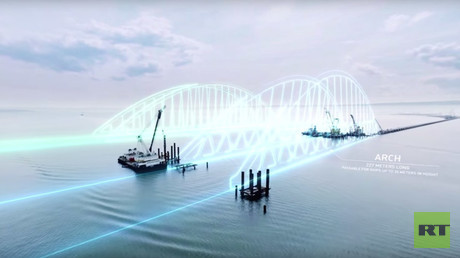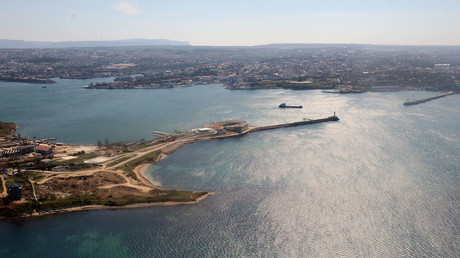Journalists from the US, the UK, Germany, South Korea, Bulgaria, Romania and Iraq have arrived to Crimea on the invitation of Russia’s Foreign Ministry.
Some of have admitted Crimea’s reunification with Russia did led to some positive developments and even acknowledged that it was really the choice of the Crimean people after they visited the peninsula and spoke to the locals.
“We have seen some positive developments here … people tell me about many things in their daily life getting better,” Jury Rescheto, the head of the German Deutsche Welle Moscow office, told RT, stressing that he saw “many positive developments … particularly for the local residents” during his visit.
He also emphasized that “Crimea now became a Russian territory regardless of whether we [the West] want it or not,” adding that “it is now a fact, a reality.”
Joining Russia was the choice of the Crimean people, Zhong Su Ha, the head of the Moscow KBS (Korean Broadcasting System) office, told RT, adding that, when he “asked the people of Crimea whether they voted for joining Russia, many people answered ‘yes.’ And when [he] asked them if they regret their decision they said ‘no.”
The Korean journalists also said that the situation in the peninsula is now calm and comfortable adding that he “feels safe.”
Many journalists also expressed their admiration for the 19km-long Crimean Bridge under construction. Once finished, this bridge, which will connect Crimea with Krasnodar region in mainland Russia, will become one of Russia’s largest.
Corey Flintoff from Washington-based National Public Radio (NPR) has called the Crimean Bridge “an amazing piece of engineering.”
“A very complex and very difficult things have been done here. So I’m very interested in seeing, how this is done. The project takes so much time and so much energy to do something that has never been successfully done in this part of the world before,” the US journalist stressed.
His colleague from German broadcaster Deutsche Welle, Evgeny Ushakov, said that reports in the media didn’t do justice to the scale of the work already been done in the Kerch Straight.
“The impressions are very good. I had no idea that the construction was going at such a pace, but when the technological bridge is ready; when the piles are hammered; supports are placed – it is impressive,” he said.
Following the cool down in relations between Moscow and the West over Russia’s reunion with Crimea in 2014 and the conflict in Ukraine, “it’s interesting for Europe to see how the people really live here; what’s the infrastructure and how Russia is going to connect with Crimean Peninsula,” Liviu Iurea, a correspondent for TV Romania, stressed.
With the construction underway in “such an accelerated tempo,” the bridge is likely to meet its deadline, Iurea stressed.
Khalid Abdalrahman from an Iraqi broadcaster, Rudaw, said that the bridge “is a huge and interesting project for Crimea, for Russia and also for the tourists.”
Once finished, the 19 kilometer- (12 mile-) long Crimean Bridge will become one of largest ever built in Russia.
It’s expected to span Crimea with Krasnodar region in mainland Russia, allowing fast, reliable and cost-effective transportation link for passengers, goods and services.
The bridge will have a four-lane highway and two-lane railroad, capable of providing access for up to 40,000 and dozens of trains a day to the peninsula over the Kerch Strain.
The Crimea Bridge is scheduled to be opened by late 2018 and to become fully operational by 2019.
In May, Russia has completed the construction of the energy bridge from mainland to Crimean Peninsula.
Four power lines were laid on the bottom of the Kerch Straight, cutting Crimea’s dependence on Ukraine in terms of receiving energy.
Last November, local authorities had to declare a state of emergency after all four Ukrainian power lines providing electricity to the peninsula were blown up, leaving Crimea in a total blackout.
Source Article from https://www.rt.com/news/350041-russia-crimea-bridge-journalists/?utm_source=rss&utm_medium=rss&utm_campaign=RSS
Related posts:
Views: 0
 RSS Feed
RSS Feed

















 July 8th, 2016
July 8th, 2016  Awake Goy
Awake Goy 

 Posted in
Posted in  Tags:
Tags: 
















